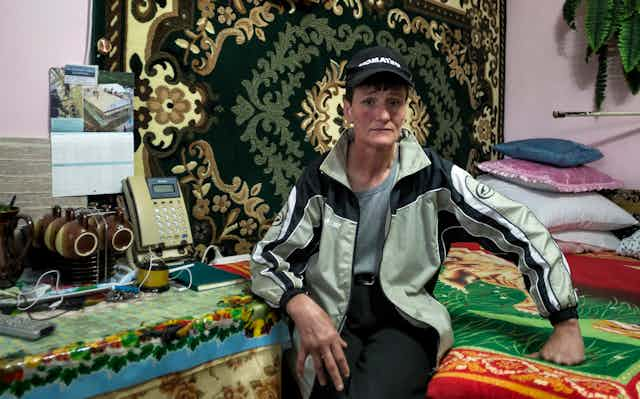A trial court in Bălți, a town in the small eastern European country of Moldova, recently found 50-year-old Stanislav Florea guilty of raping 16 women over a period of more than a decade. The court sentenced him to 13 years’ imprisonment.
Moldova – which has a population of 3.5m – is Europe’s poorest country. This trial has been particularly shocking because Florea was the psychiatrist in charge of the 400-bed social care institution in Bălți. His victims were female residents with mental health issues or other disabilities.
The conviction is important as it is the first of its kind in central and eastern Europe, where I have been working for 15 years. Over that time, I’ve heard about countless incidents of sexual violence in mental health institutions. It’s also important as an example of how people with particular needs are, and should, be treated by courts the world over.
The trial was fraught with difficulties. Instead of helping them, prosecutors scoffed at and berated the women. A human rights lawyer was deployed to help the women and get the prosecutor – and in turn the judges – to take them seriously. To their credit, the three trial judges listened to women labelled with mental health difficulties whose testimonies were at risk of being dismissed. The women were eventually taken seriously and the verdict verifies their version of what took place behind closed doors.
History tells us that detention breeds exploitation, violence and abuse. This is especially true when, as is the situation in Moldova, there is no independent and regular system of inspection. Florea was able to continue attack these women for such a long time because of the power he held as their doctor and as a respected member of the community. He used his power to threaten the women with seclusion and injecting them with large doses of neuroleptic medication.
Global attention
Earlier this year the UN Committee on the Rights of Persons with Disabilities issued a “general comment” on women and girls with disabilities. This document states that because of “stereotyping based on the intersection of gender and disability, women with disabilities may face barriers when reporting violence, such as disbelief and dismissal by police, prosecutors and courts”.

Yet women with disabilities are more likely to become victims of violence. Three years ago the Mental Disability Advocacy Centre (MDAC), an international human rights charity that I run, sent information on Moldova to the UN women’s rights committee. The resulting report called on the Moldovan government to investigate all cases of sexual assault against women with disabilities in residential institutions.
The Moldova conviction illustrates how justice systems can – when they are under the spotlight – take into account the testimonies of women who the law has otherwise labelled as incompetent.
Victims of gender-based violence need to be offered specific psychological support to deal with trauma, potentially including treatment for post-traumatic stress disorder.
The victims in this case were also institutionalised and had disabilities. Another complicating factor was that a public institution had breached their trust. In small and resource poor countries such as Moldova, there are few professionals up to the job of investigating.
Closing institutions
The Moldova case also highlights another disturbing problem. In order to reduce the likelihood of abuse like this happening, the Moldovan government is being called upon to get rid of the kind of institution that Florea ran – those that keep people with mental health issues locked up, away from the rest of the world.
In Moldova there are 2,200 people who are forced to live in 13 psychiatric and social care institutions. Across Europe there are no reliable data, but there are believed to be well over one million people languishing in institutions of this kind.
These establishments hark back to a bygone age when it was considered acceptable to warehouse people labelled as “mad” or “incompetent” to live their lives out of sight and out of mind. Segregation of people with disabilities is no longer acceptable anywhere in the world, and the global trend is to shift people out of institutions and into the community with the support they need to flourish. Budgetary flexibility, policy reform and local leadership are all needed to create alternatives that work in any context.
Community living is not just a nicety – it is an enforceable right. The UN Convention on the Rights of Persons with Disabilities is binding on Moldova, as it is on most countries. The Convention requires governments to implement the right to live independently and be included in the community with the benefit of individualised services designed to prevent segregation and isolation.
The conviction of a serial rapist in Moldova has highlighted the horrors of sexual violence against women with disabilities, but has also reminded us about the consequences of institutionalisation. The women of Bălți may have had justice in the courtroom, but they also deserve inclusion in the community.

